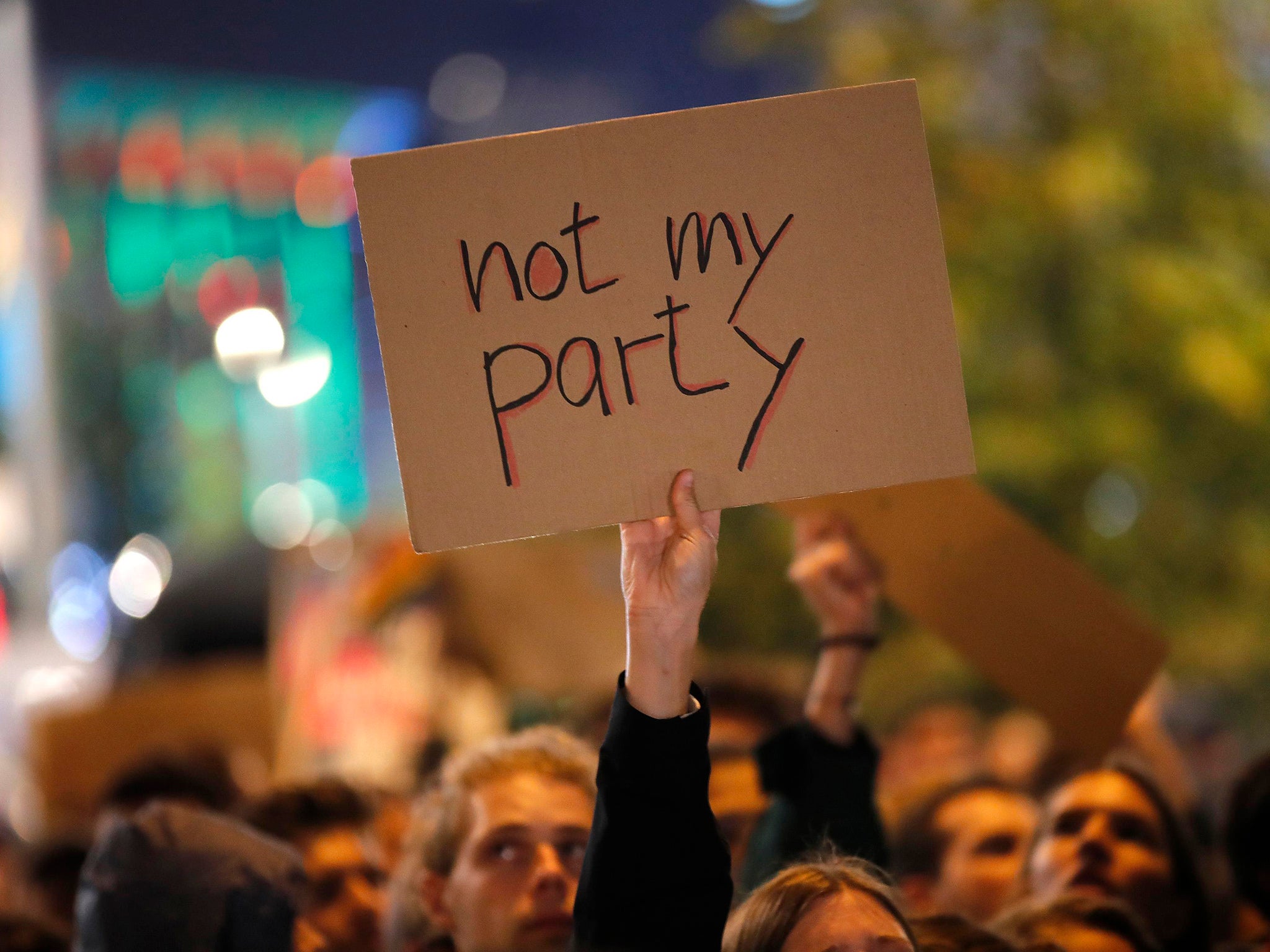Like Germany's teachers, we should guard against those who would spread political disunity in Europe
'From history we know that what begins with denunciation and intimidation ends with the detention of dissenters in camps'

The establishment by Germany’s far-right party, Alternative für Deutschland (AfD), of an online portal to enable students to report teachers who are not politically neutral met a storm of protest earlier this month. While teachers in the country are required not to express their political views, critics argued that the measure had echoes of Germany’s authoritarian past.
As The Independent reports today, teachers at one school have responded by reporting themselves en masse to the AfD – others may follow suit. In a letter to the AfD the teachers said they would, in line with applicable policies, “continue to ensure that school students are empowered to understand the character of your party”.
“From history,” they added, “we know that what begins with denunciation and intimidation ends with the detention of dissenters in camps.”
It is inevitable perhaps that a resurgent nationalism in Germany tends to ring louder alarm bells than it might do elsewhere – history, after all, casts its own shadow. The same is true in Italy where Matteo Salvini and his Lega Nord party came to power this year in alliance with the populist Five Star Movement. In Italy, anti-establishment and anti-migrant campaigning points have become government policy. Last week Mr Salvini announced a proposal to force “ethnic” shops to close by 9pm in order, apparently, to bring an end to antisocial behaviour by those frequenting such premises.
Yet the surge in support for parties that promote nationalism and seek power through robust leadership – while opposing immigration, pouring scorn on “elites” and doubting the advantages of globalisation – extends far beyond the borders of Germany and Italy. The Sweden Democrats took 18 per cent of the vote in that country’s general election last month. In Hungary, Viktor Orban and his Fidesz party won an overwhelming parliamentary majority in April. On Friday, Poland’s ruling Law and Justice party was warned by the European Court of Justice to end policies that give politicians greater power over judicial appointments. And a new poll in Spain has indicated support for the little known alt-right Vox party is increasing.
The swing to authoritarianism is not only evident in Europe of course. Strongman leaders, wearing “patriotism” on their sleeves, have come to prominence around the world; from the US and Brazil to the Philippines and beyond – and that’s to say nothing of Russia or even North Korea.
None of this means we should throw our hands in the air and conclude that the world is marching backwards to the dark days of the 1930s. Democracy and liberal values are a great deal more entrenched than they were then; the forces of globalisation and progress cannot be undone at a stroke simply at the whim of a few charismatic individuals. In Europe and in North America, the rule of law remains – for the most part – a strong bulwark against the development of authoritarianism as the continent has previously known it. The institutions of the EU – so belittled by those in this country who back Brexit – play an important role in that regard too. And we should not forget that the AfD won just 10.2 per cent of the votes cast in last week’s Bavarian elections.
Equally, though, it does no harm to remain vigilant against dark forces. We have seen in the Brexit debates that have dominated – and continue to dominate – political discourse in the UK how easy it is for populist causes to draw succour from the lazy appeal of the nation state, and to prey on those standard scapegoats: immigration, multiculturalism and political correctness. The language deployed by too many politicians even here uses needlessly violent imagery. The prime minister has been on the receiving end from members of her own party in the last few days. It is frankly appalling.
So no, we are not – we trust – retreading the bleak roads that led to global conflagration in 1939. But political disunity within and between states takes many forms and has many causes. We should guard against it, following the lead of Germany’s teachers from whom modern lessons can be learned.


Join our commenting forum
Join thought-provoking conversations, follow other Independent readers and see their replies